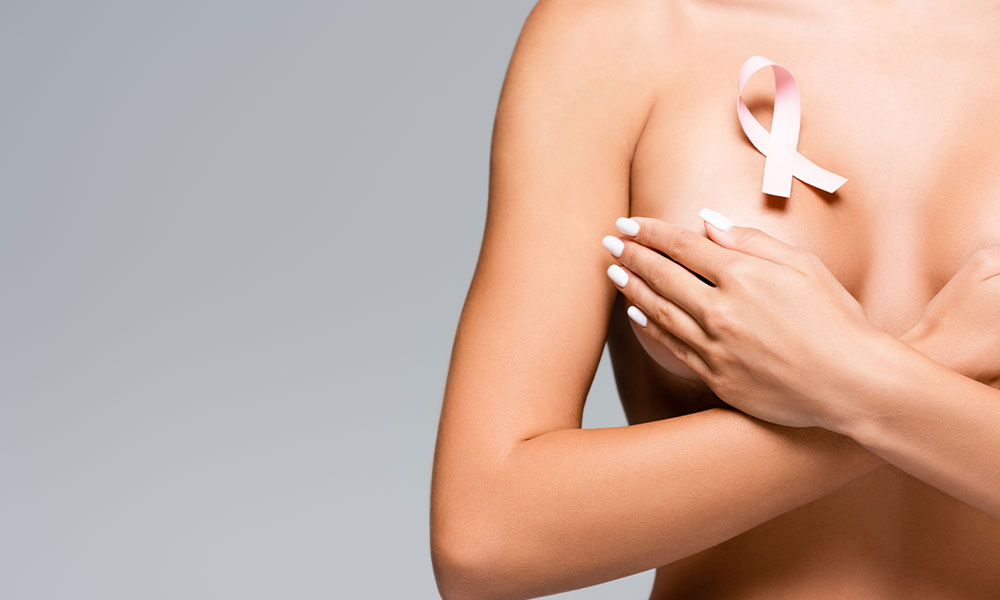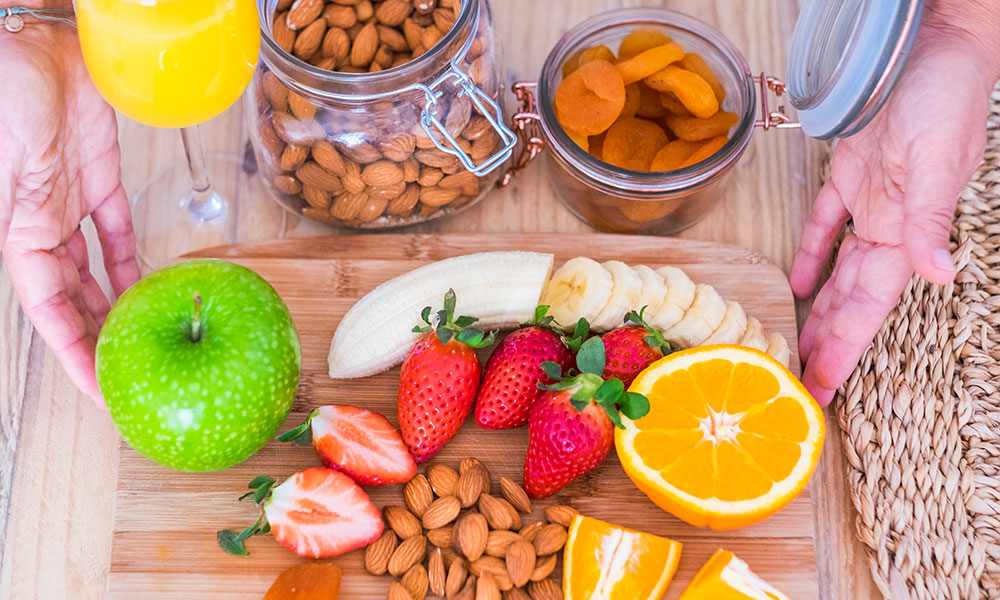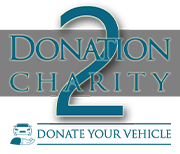Simple Lifestyle Changes to Lower Your Breast Cancer Risk

Breast cancer is one of the most common cancers among women worldwide, and while advances in treatment have significantly improved survival rates, prevention remains a powerful tool in the fight against this disease. Small lifestyle changes can significantly reduce the risk of developing breast cancer, empowering individuals to take charge of their health proactively. In this article, we will explore preventive measures, including diet, exercise, and regular screenings, to help you lower your breast cancer risk.
1. Understanding Breast Cancer Risk Factors
Breast cancer risk is influenced by a combination of genetic, environmental, and lifestyle factors. While you cannot change certain risk factors, such as age or family history, lifestyle choices play a crucial role in reducing your overall risk. Adopting healthy habits can be a proactive way to safeguard your health and lower the chances of developing breast cancer.

2. The Power of a Healthy Diet
What you eat can impact your overall health, including your breast cancer risk. A balanced diet rich in nutrients can help maintain a healthy weight, boost your immune system, and reduce inflammation, all of which are vital in cancer prevention.
- Incorporate Plenty of Fruits and Vegetables: Colorful fruits and vegetables are packed with vitamins, minerals, and antioxidants that help protect your cells from damage. Aim to include a variety of produce, such as berries, leafy greens, and cruciferous vegetables like broccoli and cauliflower, which contain compounds that may help lower cancer risk.
- Choose Healthy Fats: Opt for sources of healthy fats, such as olive oil, avocado, and fatty fish like salmon, which are rich in omega-3 fatty acids. These fats have anti-inflammatory properties that may reduce the risk of breast cancer.
- Limit Alcohol Consumption: Studies have shown that alcohol consumption is linked to an increased risk of breast cancer. The American Cancer Society recommends limiting alcohol intake to no more than one drink per day for women. If possible, consider abstaining altogether to lower your risk even further.
- Focus on Whole Grains and Fiber: Whole grains, legumes, and fiber-rich foods help regulate blood sugar levels and support healthy digestion. High-fiber diets have been associated with a lower risk of breast cancer, as fiber helps reduce estrogen levels in the body.
- Avoid Processed Foods and Sugary Drinks: Processed foods and sugary beverages often contain high amounts of unhealthy fats, sugar, and additives that can contribute to weight gain and inflammation, increasing breast cancer risk. Instead, opt for natural, whole foods that nourish your body.
3. Stay Physically Active
Physical activity is a cornerstone of cancer prevention, helping to regulate hormones, maintain a healthy weight, and boost your immune system. Regular exercise can also improve mental well-being, reducing stress and anxiety, which are linked to an increased risk of various health conditions.
- Aim for 150 Minutes of Moderate Exercise Per Week: Engaging in at least 150 minutes of moderate-intensity exercise, such as brisk walking, swimming, or cycling, each week can significantly reduce breast cancer risk. If you prefer more vigorous activities, 75 minutes per week of high-intensity exercises like running or aerobics can be equally beneficial.
- Incorporate Strength Training: Adding strength training exercises, such as weightlifting or bodyweight exercises, two to three times per week can help build muscle, boost metabolism, and improve overall body composition.
- Find Activities You Enjoy: The best exercise is the one you enjoy and can stick with long-term. Whether it’s dancing, hiking, yoga, or joining a local sports team, finding activities that bring you joy will help you stay consistent with your fitness routine.

4. Maintain a Healthy Weight
Being overweight or obese, especially after menopause, increases the risk of breast cancer. Excess body fat can lead to higher levels of estrogen and insulin, hormones that can promote the growth of cancer cells.
- Focus on Gradual, Sustainable Weight Loss: If you’re looking to lose weight, aim for a gradual reduction of about 1-2 pounds per week through a combination of healthy eating and exercise. Avoid crash diets or extreme measures, as these are often unsustainable and can lead to weight regain.
- Set Realistic Goals: Break down your weight loss journey into manageable goals, such as losing 5-10% of your current weight. Even modest weight loss can have significant health benefits and reduce breast cancer risk.
5. Limit Hormone Replacement Therapy (HRT)
Hormone replacement therapy, particularly combined estrogen and progestin therapies has been linked to an increased risk of breast cancer. If you’re considering HRT for managing menopause symptoms, discuss the risks and benefits with your healthcare provider. If HRT is necessary, opt for the lowest effective dose for the shortest duration possible.
6. Regular Screenings and Self-Exams
Early detection is key to successful breast cancer treatment. Regular screenings, such as mammograms, can help detect breast cancer at an early stage when it is most treatable.
- Schedule Regular Mammograms: The American Cancer Society recommends that women aged 40-44 have the option to start annual mammograms, while those aged 45-54 should get mammograms every year. Women 55 and older can switch to mammograms every two years or continue annual screenings based on personal preference and risk factors.
- Perform Monthly Self-Exams: Familiarize yourself with the look and feel of your breasts to detect any changes, such as lumps, swelling, or skin dimpling. While self-exams do not replace regular screenings, they can help you notice changes between check-ups and prompt you to seek medical advice.

7. Avoid Tobacco
Smoking is linked to an increased risk of many cancers, including breast cancer, especially in premenopausal women. If you smoke, quitting is one of the most impactful steps you can take for your overall health and cancer prevention. Seek support through cessation programs, counseling, or medications to increase your chances of success.
8. Manage Stress
Chronic stress can weaken your immune system and may indirectly increase cancer risk by contributing to unhealthy habits, such as poor diet, lack of exercise, or excessive alcohol consumption. Managing stress through mindfulness, meditation, regular exercise, and sufficient sleep can help improve overall health and reduce breast cancer risk.

Conclusion
Preventing breast cancer is not about making drastic changes overnight but rather adopting small, sustainable habits that collectively lower your risk. By focusing on a healthy diet, staying active, maintaining a healthy weight, limiting alcohol and tobacco use, and committing to regular screenings, you can take control of your health and reduce your breast cancer risk. Prevention truly is better than cure, and every positive change you make today is an investment in a healthier, cancer-free future.
Please consider donating your Car, Truck, SUV, Van, RV, or Boat to one of our Charities.
NOTE: Our Blogs have been fact-checked; however, we cannot guarantee 100% accuracy. If you find any incorrect information, please let us know in the comments and we will remove or edit inaccurate content. Thank you!




